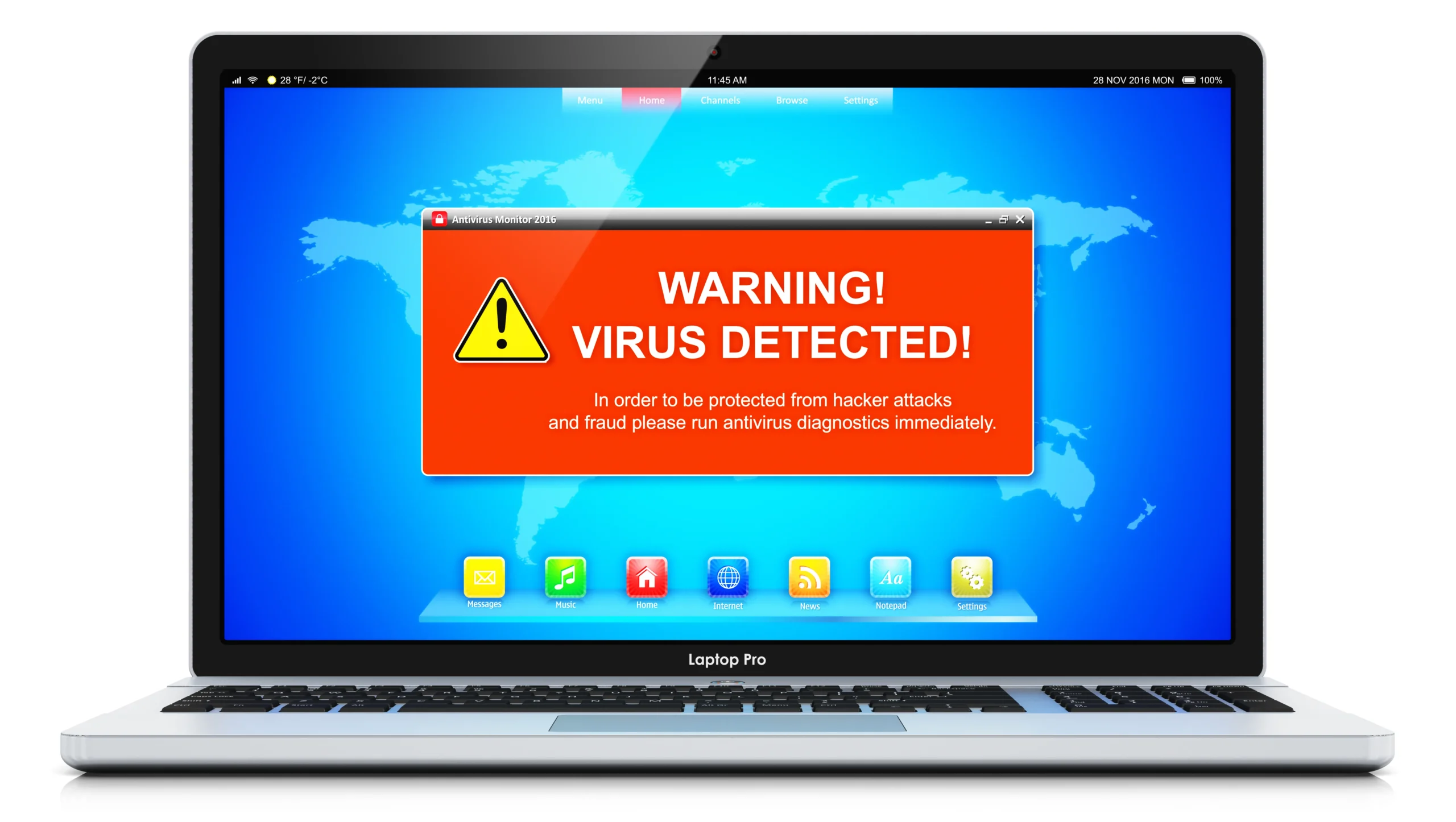Scams are becoming increasingly sophisticated, and one Knoxville woman, Sharon Hart, learned this the hard way when she lost $1,000 after being tricked by a scammer who took control of her laptop. This incident is a stark reminder to be cautious when dealing with unexpected technical issues, especially when prompted to take urgent action by suspicious pop-ups.
How the Scam Unfolded
Sharon Hart’s trouble started when she bought a secondhand laptop from a pawn shop in Knoxville. Excited to register her new device, she powered it up, only to be greeted by a flashing screen and an alarming message claiming her computer was in danger. The screen urged her to call a phone number, supposedly to resolve the issue.
According to Hart, her laptop wouldn’t stop ringing and flashing the message, “Call Microsoft, your laptop is in danger.” Feeling panicked, she called the number listed on the screen, and a man claiming to be from Microsoft answered. He reassured her that he would help fix the problem.
As the man took control of her computer, he told Hart that her account had been hacked. He pretended to troubleshoot the issue, instructing her to buy two $500 gift cards from Home Depot to secure her account. Trusting his guidance, Hart followed the directions and gave him the gift card numbers. The scammer then told her that her account was now secure.
Unfortunately, that wasn’t the case.
Recognizing the Signs of a Tech Support Scam
Hart’s experience is a textbook example of a tech support scam, where cyber criminals create fake pop-up warnings or messages to trick people into believing their computer has been compromised. They typically ask for remote access to the device, allowing them to manipulate files and steal personal information. In many cases, they demand payment through gift cards, a red flag, as legitimate companies like Microsoft never request payments this way.
Sharon Hart was left wondering what the man did with her money. Like many victims of tech support scams, she had no idea what the funds were used for, only realizing afterward that she had been duped.
How to Protect Yourself from Tech Support Scams
If you ever encounter a situation like Hart’s, it’s essential to stay calm and recognize the hallmarks of a scam. Here are several key tips to avoid becoming a victim:
Don’t call numbers from pop-up warnings:
Legitimate tech companies, including Microsoft, do not use pop-ups to tell users their computer is infected. Never call the number listed in a suspicious alert.
Don’t give remote access to your device:
Scammers will often ask for remote control of your computer to “fix” the issue. This gives them access to your files and personal information, allowing them to install malware or steal data.
Don’t pay with gift cards:
Scammers frequently ask for payment via gift cards because they are difficult to trace. Legitimate companies will never ask you to pay this way.
Shut down your computer if you suspect malware:
If your device starts acting strangely, like displaying fake warnings or ringing continuously, the safest thing to do is shut it down and contact a trusted computer professional.
Install a reliable antivirus program:
Protect your device by installing and regularly updating antivirus software. This can help block unwanted pop-ups and prevent malware from infecting your system.
PC Matic is a trusted antivirus that uses unique whitelist technology to block malware and ransomware. It ensures your computer stays secure and efficient with proactive protection, automatic updates, and system optimization. Made in America, PC Matic offers reliable, affordable protection.
Be careful with downloads and links:
Scammers often hide malware in pop-up ads or links. Avoid clicking on suspicious ads and only download software from trusted sources.
Sharon Hart’s Final Advice
Reflecting on her experience, Sharon Hart offered one key piece of advice: “Don’t ever give your information out to anyone.” She encourages people to be cautious, especially when dealing with unfamiliar tech issues. If something doesn’t seem right, it’s best to shut down your device and seek help from a professional, rather than trusting an anonymous person on the other end of the phone.
Although Hart reported the scam to the Federal Trade Commission (FTC), recovering the $1,000 she lost is slim. Fortunately, her laptop is working properly, but her experience is a cautionary tale for anyone dealing with sudden technical problems.
Conclusion
Tech support scams can strike when you least expect it, turning what seems like a minor computer issue into a costly nightmare. By staying informed and cautious, you can protect yourself from falling victim to these scams. Always be skeptical of unsolicited help, especially when payment or personal information is involved. Following simple safety steps like installing reliable antivirus software and shutting down your device when in doubt can save you time, money, and peace of mind.




